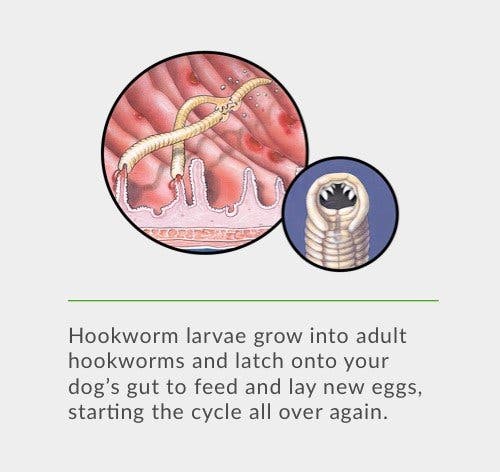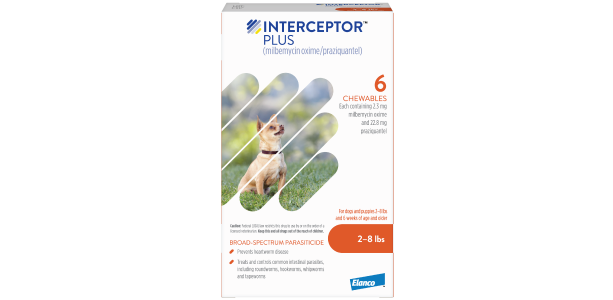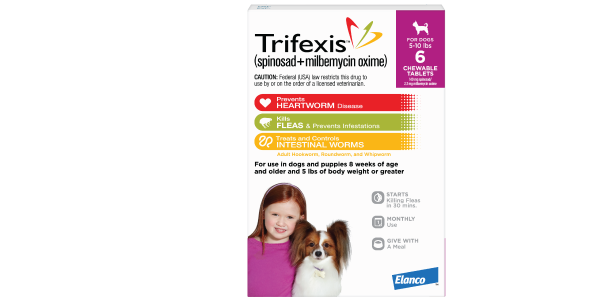Get to know hookworm before your dog does.
Hookworms are insidious parasites that can live inside a dog’s intestine. While they typically cause mild symptoms in adult animals, they can be much more serious in puppies.
Learn how dogs get hookworms, the signs and symptoms of an infection, the risk these intestinal parasites can pose to humans and how to treat and prevent hookworm in dogs.
How Does Your Dog Get Hookworms?
Hookworms thrive in moist, warm environments. When infected animals leave waste in soil or sand, hookworm eggs can spread and hatch into larvae.
Your dog can become infected if they swallow these larvae while digging around and playing outside, or while eating dirt, stool, grass or infected prey like rodents and insects. Hookworm larvae can even burrow into your dog’s paws as they walk, causing inflamed and sore skin between their toes. Your dog could also eat the larvae as they groom their paws.
DID YOU KNOW?
Puppies are particularly at risk for hookworms. They often contract the parasites soon after birth by drinking their infected mother’s milk.
Once swallowed, hookworm larvae grow into adult hookworms and latch onto your dog’s gut to feed and lay new eggs, starting the cycle all over again.

What are the Symptoms of Hookworms in Dogs?
Symptoms of hookworm can include:
- Anemia
- Fatigue
- Poor appetite
- Unexplained weight loss or stunted growth
- Diarrhea, potentially bloody
- Dark or tar-like poop
- Difficulty breathing
- Itchy paws
Hookworms are white or reddish-brown, very thin — like a strand of hair — and short, sometimes less than an inch long. Although they may be present in your pet’s stool, they can be difficult to see with the naked eye. Your vet can make a diagnosis by looking for hookworm eggs from a fecal sample from your dog.
Can Humans Get Hookworms from their Dogs?
Yes, humans can contract hookworms from infected dog waste. You may accidentally ingest the larvae or they can burrow into your skin when your bare feet or hands have extended contact with contaminated soil, such as when gardening or walking around barefoot. Make sure to always wash your hands after touching dirt, and avoid walking outside while barefoot in places where pets often congregate.
How to Treat Hookworm in Your Dog
You can help reduce the risk of hookworm infection by keeping your pet’s areas clean, and regularly removing pet waste from your yard or local park.
To help get rid of worms already living inside your dog, you can use a deworming treatment to kill many common intestinal worms found in dogs. Be sure to read the worming product label to learn how often to deworm your dog.
Keep in mind that intestinal worms like hookworms are very common, especially in puppies. If your dog has worms, don’t panic! Giving a deworming treatment is a quick and easy way to help eliminate these pests so your dog can get back to making memories with your family.

Interceptor® Plus (milbemycin oxime/praziquantel)
A monthly chew that protects dogs and puppies 6 weeks or older and 2 pounds or greater against heartworm disease, adult hookworm, roundworm, tapeworm and whipworm infections.

Trifexis® (spinosad + milbemycin oxime)
A beef-flavored tablet that kills fleas and prevents flea infestations, prevents heartworm disease, and treats and controls adult hookworm, roundworm and whipworm infections.

Quad Dewormer (praziquantel/pyrantel pamoate/febantel) for Dogs
Nonprescription broad-spectrum dewormer that is effective against tapeworms, roundworms, hookworms and whipworms. Not for human use. Keep out of reach of children.
Interceptor® Plus (milbemycin oxime/praziquantel)
Indications:
Interceptor Plus prevents heartworm disease and treats and controls adult roundworm, hookworm, whipworm, and tapeworm infections in dogs and puppies 6 weeks or older and 2 pounds or greater.
Important Safety Information:
Treatment with fewer than 6 monthly doses after the last exposure to mosquitoes may not provide complete heartworm prevention. Prior to administration of Interceptor Plus, dogs should be tested for existing heartworm infections. The safety of Interceptor Plus has not been evaluated in dogs used for breeding or in lactating females. The following adverse reactions have been reported in dogs after administration of milbemycin oxime or praziquantel: vomiting, diarrhea, decreased activity, incoordination, anorexia, convulsions, weakness, and salivation.
For complete safety information, please see Interceptor Plus product label or ask your veterinarian.
Trifexis® (spinosad + milbemycin oxime)
Indications:
Trifexis prevents heartworm disease. Trifexis kills fleas and prevents flea infestations, and treats and controls adult hookworm, roundworm and whipworm infections in dogs and puppies 8 weeks and older and 5 pounds or more.
Important Safety Information:
The use of ivermectin at higher than FDA-approved doses at the same time as Trifexis can result in serious side effects. Treatment with fewer than three monthly doses after the last exposure to mosquitoes may not provide complete heartworm prevention. Prior to administration of Trifexis, dogs should be tested for existing heartworm infection. Use with caution in breeding females. The safe use of Trifexis in breeding males has not been evaluated. Use with caution in dogs with pre-existing epilepsy. The most common adverse reactions reported are vomiting, decreased activity, itching, decreased appetite, and diarrhea. To ensure heartworm prevention, observe your dog for one hour after administration. If vomiting occurs within an hour of administration, redose with another full dose. Puppies less than 14 weeks of age may experience a higher rate of vomiting.
For complete safety information, please see Trifexis product label or ask your veterinarian.
Quad Dewormer (praziquantel/pyrantel pamoate/febantel) Chewable Tablets for Dogs
USES:
Quad Dewormer (praziquantel/pyrantel pamoate/febantel) Chewable Tablets for Dogs will remove common tapeworms (Dipylidium caninum and Taenia pisiformis), remove common hookworms (Ancylostoma caninum, Uncinaria stenocephala), remove common roundworms (Toxocara canis and Toxascaris leonina) and remove whipworms in dogs (Trichuris vulpis).
Important Safety Information:
Consult your veterinarian for assistance in the diagnosis, treatment and control of parasitism. Consult your veterinarian before administering the tablets to weak or debilitated animals. Do not deworm a dog or puppy that is sick. Consult your veterinarian for diagnosis of the illness and appropriate care. Not for use in puppies that are younger than 3 weeks of age or dogs weighing less than 2 lbs. May be given directly in the mouth or offered in a small amount of food. WARNING: Keep out of reach of children.
For complete directions for use and safety information see product label.
Interceptor® Plus
CAUTIONS: Keep out of reach of children. For animal use only.


